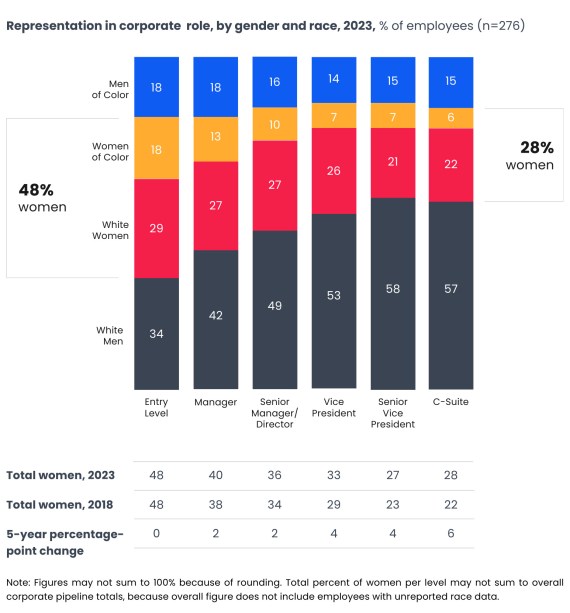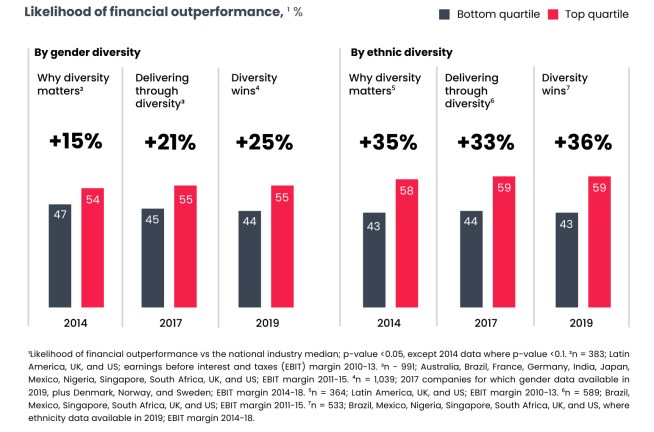Empowering Change: TFS’s Strategic Approach to Gender Diversity in Leadership
Gender diversity in leadership positions is no longer a luxury, but a necessity for organizations seeking to thrive in a highly competitive global clinical research market. Diverse leadership teams not only promote innovative problem-solving strategies to drive business growth, but they can better understand the needs of their diverse customer base. Organizations play an instrumental role in fostering gender diversity. They have the power to implement policies and practices that promote equal opportunities for both men and women, as well as create a supportive environment that encourages the professional growth of women.
TFS HealthScience CRO, a global contract research organization (CRO) that provides clinical research services, stands at the forefront of promoting gender diversity in leadership. We believe that by encouraging gender diversity, it can foster an environment that stimulates creativity, innovation, and ultimately, business success. Read on to learn more about TFS’s strategic approach to promoting gender diversity in leadership and empowering change at all levels!
Understanding the Global Landscape of Gender Diversity in Leadership
In order to fully grasp TFS’s strategic approach, it’s necessary to understand the landscape of gender diversity in leadership roles globally. Despite the progress made in recent years, women are still underrepresented in leadership roles across the globe. The World Economic Forum’s Global Gender Gap Report 2023 indicates that the gender gap in economic participation and opportunity was 68.4% closed, which is only a 0.3% improvement from 2022. Furthermore, according to McKinsey’s Women in the Workplace 2023 report, women’s representation in corporate roles across 276 organizations, from entry-level (48%) to the C-suite (28%), only saw modest increases (0% to 6%) since 2018 (Figure 1). The report also highlights the persistent underrepresentation of women in minorities throughout the corporate pipeline.
Figure 1. Comparing the state of representation by gender and race across the corporate leadership pipeline in 2018 versus 2023.

Source: Women in the Workplace 2023, McKinsey & Company.
Women face numerous challenges in climbing the corporate ladder, ranging from gender stereotypes and bias to the lack of work-life balance and mentorship opportunities. Although the ‘glass ceiling’ is believed to be the greatest barrier to women’s advancement, McKinsey found that the real obstacle on the path to senior leadership is the ‘broken rung.’ That is, there is a gender disparity in early promotions; for every 100 men promoted from entry-level to manager, 87 women received the same promotion. As a result of this ‘broken rung,’ women fall behind and have difficulty catching up in promotions to senior manager roles and beyond.
The underrepresentation of women in leadership roles is not only a matter of social justice but also a missed opportunity for companies. Several studies now demonstrate how businesses can benefit from gender diversity, including improved financial performance, enhanced innovation capacity, and better decision-making. For example, a 2019 business case by McKinsey found that companies in the top quartile for gender and ethnic diversity were 25% and 36% more likely to outperform on profitability, respectively (Figure 2). TFS’s strategic approach is rooted in our deep understanding of such benefits, as well as a commitment to breaking down barriers preventing more women from reaching leadership roles.
Figure 2. There is a significant relationship between ethnic and gender diversity in executive teams and the likelihood of companies’ financial outperformance.

Source: Diversity Wins data set, McKinsey & Company.
TFS’s Commitment to Gender Diversity
TFS is actively working to bridge the gender gap in leadership by fostering a positive, non-discriminatory environment where every person, regardless of gender, ethnicity, or cultural background, is a valuable asset. Recognizing the value of executive teams with diverse perspectives, this CRO operates on the key principle of eliminating discrimination and celebrates its employees’ differences in gender, ethnicity, culture, and abilities. In an ongoing commitment to improving diversity within TFS’s leadership teams, they have proactively invested in a new platform to measure employee satisfaction and engagement. This platform runs surveys multiple times a year, ensuring employees can voice their opinions on the state of diversity, inclusion, health, and wellbeing at TFS.
TFS believes in promoting equality by providing the same opportunities to both men and women pertaining to employment, education, time off during parenthood, promotion, professional development, and so much more. It also strongly supports continuous education, qualification, training, and development in its employees by equipping them with a rich array of learning programs and training platforms. Notably, several internship and traineeship programs have been implemented to open the door for young researchers. This resulted in a 5% increase in the most underrepresented age group within the company’s workforce, demonstrating TFS’s commitment to supporting the next generation of clinical researchers.
Lastly, the make-up of various teams at TFS is further proof of the company’s commitment to closing gender disparities and driving diversity through policy implementation and equal-opportunity programs. As of 2023, women represent 77% of all employees, 68% of all Director roles, and 50% of the Executive Committee at TFS (Figure 3). The following five are among the many accomplished women in leadership at TFS who are driving change and supporting the company’s mission to create a healthier future:
1. Bin Pan, Ph.D. (Executive Director, Program Strategy, Oncology & Hematology)
Read more about Dr. Pan in the first of our EmpowHER article series!
2. Anne-Marie Nagy, Ph.D. (Vice President, Head of Internal Medicine & Neuroscience)
Dr. Nagy was listed as one of the Top 10 Influential Women in Clinical Research.
3. Marcia Swank (Vice President, Head of Ophthalmology)
Learn more about diversity empowerment in Marcia’s EmpowHER article!
4. Ina Zschocke, Ph.D. (Vice President, Head of Dermatology, Immunology, & Inflammatory Diseases)
Dr. Zschocke was listed as one of the Top 10 Influential Women in Clinical Research.
5. Hanna Sandvall (Vice President, Head of Strategic Resourcing Solutions)
Read more about Hanna in her EmpowHER article!
Figure 3. TFS is ahead of the curve in creating equitable opportunities for women to be better represented across various levels, including higher management and the Executive Committee.

Source: Sustainability Report 2022, TFS HealthScience CRO.
Strategic Initiatives for Companies to Improve Their Gender Diversity
Achieving gender diversity, especially in leadership roles, requires strategic planning and a commitment to change. In line with this mission, TFS has demonstrated an ongoing dedication to developing the following strategic initiatives. Like TFS, companies can adopt one or more of these three key categories of approaches to improve gender diversity amongst their workforce and leadership teams.
1 | Inclusive hiring practices
- Eliminating gender discrimination in the workplace begins with unbiased recruitment processes, such as using gender-neutral language in job descriptions and anonymizing applications during the initial screening phase.
- During the selection phase, companies can construct interviewer panels with employees of varying backgrounds and experiences to help reduce unconscious bias against candidates.
- External outreach programs can also be implemented to attract unique talent of underrepresented groups through pipelines such as partnerships with women’s professional organizations or job fairs at women’s colleges.
2 | Leadership development programs
- Mentorship and sponsorship initiatives can level the playing field for all employees, particularly women at entry-level. These provide equitable opportunities to receive guidance and support while navigating one’s career path.
- Companies that recognize the value of continuously upskilling their workforce should provide ongoing training and skill-building programs, especially targeting those historically underrepresented in leadership roles.
- Another component of advancing gender diversity at the executive level is to compare the accessibility of opportunities for leadership training or leadership positions on important projects between men and women, particularly women of color.
3 | Flexible work policies
- In today’s era of technological revolution, remote work options are becoming increasingly common to provide employees, especially women, the flexibility to manage their professional and personal commitments.
- Equitable family-friendly policies provide men and women with the same access to opportunities such as maternity leave, paternity leave, and childcare support. These policies improve long-term employee retention and help more women progress toward leadership roles.
- Work-life balance initiatives, such as flexible scheduling and ensuring a reasonable workload, contribute to a healthier working environment and a more positive outlook on the company for all employees.
Conclusion
Gender diversity in leadership is an essential component of reaching business success for companies. Organizations, such as TFS HealthScience CRO, that demonstrate an ongoing commitment to fostering gender diversity are not only promoting a culture of inclusivity and respect but also positioning themselves for stronger innovation and business growth. From their extensive training offerings to equal-opportunity employee support policies, TFS’s approach to improving gender diversity in leadership serves as a model for other companies, encouraging a shift in industry norms and expectations. Overall, TFS is one of the pioneers in these trends, demonstrating that closing the gender gap in leadership roles is not only attainable but beneficial. With these strategic approaches, companies can challenge traditional leadership structures and empower change to promote a more inclusive industry,
About TFS HealthScience CRO
TFS HealthScience is a global CRO that supports biotechnology and pharmaceutical companies throughout their entire clinical development journey. In partnership with customers, we build solution-driven teams free of discrimination in our mission to work towards a healthier future. As a trusted CRO partner throughout the entire clinical development journey, we recognize the value of diverse leadership perspectives in providing quality clinical research services for our clients. Visit our website to learn more about the solutions TFS can offer for your next clinical trial, or connect with a TFS representative today!
Learn more about our related services and resources:
Contact Us:
Contact us today to learn more.
